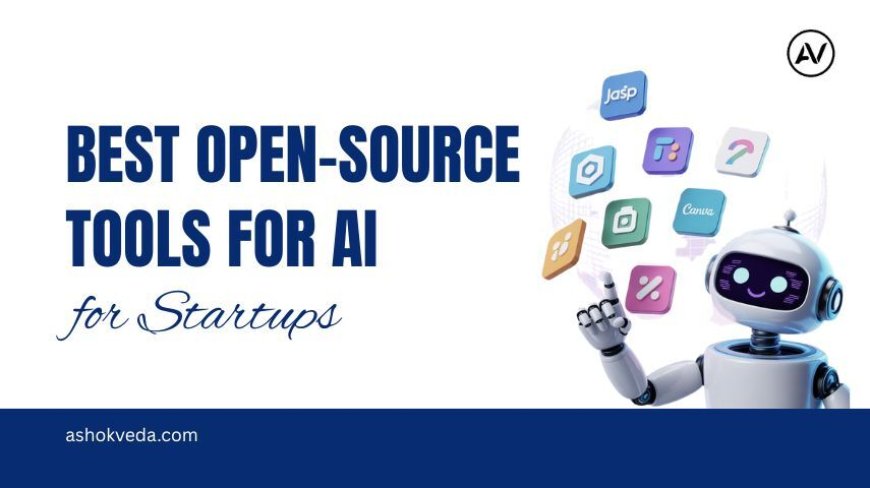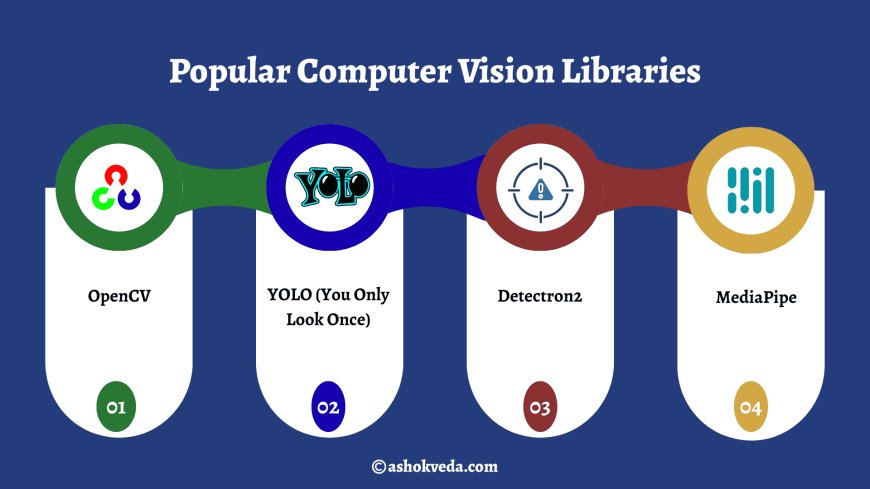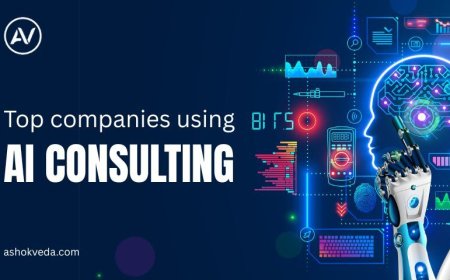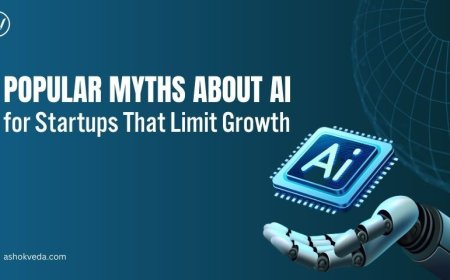Best Open-source Tools for AI for Startups
Open-source tools help AI for Startups cut costs, speed up innovation, and build scalable solutions in machine learning, NLP, big data, and MLOps.

Building an AI-driven startup once demanded huge budgets, enterprise-level software, and large technical teams. Today, the shift toward open-source technologies has completely changed the game. These community-powered tools have made advanced AI capabilities affordable and accessible, even for early-stage startups with limited resources. From machine learning frameworks to automation libraries, founders can now build, test, and deploy intelligent solutions faster than ever. When used strategically, open-source tools help reduce development costs, speed up innovation, and provide startups with the flexibility to experiment and scale. This new ecosystem empowers startups to compete with larger companies on a more level playing field.
Why Open-source Tools Matter in AI for Startups
Startups operate under tight budgets, lean teams, and high uncertainty. Open-source tools offer several advantages that directly address these challenges. They reduce the dependency on high-cost platforms, provide transparency, offer community support, and create room for rapid experimentation. Many leading innovations in AI today—such as deep learning breakthroughs and transformer architectures—originated from open-source communities.
Here are the core advantages that make open-source critical in AI for Startups:
-
Cost-effective development with zero licensing fees
-
Access to cutting-edge innovations faster than closed platforms
-
Customizability to tailor models, workflows, and pipelines
-
Large community support with forums, tutorials, and peer contributions
-
Easy integration with cloud services and modern tech stacks
With these advantages, founders can focus more on product innovation rather than infrastructure expenses.
Key Categories of Open-source Tools Used in AI for Startups
To build, deploy, and scale AI systems, startups rely on several categories of tools. Each serves a critical function in the AI pipeline. Below, we explore these categories and highlight the most important open-source tools used in AI for Startups.
1. Machine Learning Frameworks
Machine learning frameworks provide the foundation for building predictive models, neural networks, and intelligent systems. They are essential for AI startups building products in areas like recommendation engines, fraud detection, demand forecasting, or personalization.
Popular Open-source ML Frameworks
-
TensorFlow Ideal for deep learning, large-scale ML models, and production workloads.
-
PyTorch
Preferred for flexibility, research, and rapid prototyping. -
Scikit-learn
A go-to library for classical machine learning algorithms and preprocessing. -
XGBoost and LightGBM
Powerful libraries for gradient boosting, popular in structured data tasks.
Why They Matter for Startups
-
Reduce experimentation time
-
Provide pre-built layers and algorithms
-
Offer GPU acceleration for faster training
-
Supported by massive global communities
These frameworks form the core of AI experimentation and deployment in early-stage companies.
2. Natural Language Processing (NLP) Libraries
Startups increasingly use NLP for chatbots, automation, sentiment analysis, customer support, and text analytics. Open-source NLP libraries make these capabilities easy to integrate.
Leading NLP Tools
-
spaCy
Industrial-grade NLP with fast processing and pre-trained models. -
NLTK
Great for learning and basic text analytics. -
Hugging Face Transformers
Hosts state-of-the-art transformer models including BERT, GPT, and T5. -
Rasa
Open-source conversational AI framework for chatbots.
Benefits for AI for Startups
-
Access to pre-trained models saves months of work
-
Easy fine-tuning for domain-specific needs
-
Ideal for customer service, content automation, and voice products
Open-source NLP tools have made advanced language capabilities accessible even to non-expert teams.
3. Computer Vision Libraries
Startups working in retail, healthcare, transportation, or security often rely on vision-based solutions. Open-source vision libraries support object detection, facial recognition, image classification, and video analytics.
Popular Vision Libraries
-
OpenCV
Industry-standard for image processing and computer vision tasks. -
YOLO (You Only Look Once)
Real-time object detection that’s extremely efficient. -
Detectron2
Facebook’s library for advanced detection and segmentation. -
MediaPipe
Google’s framework for face tracking, pose estimation, and gesture recognition.

Value for AI for Startups
-
Enables visual automation and monitoring
-
Helps build intelligent products with minimal cost
-
Provides real-time performance suitable for edge and mobile applications
Computer vision capabilities are now achievable without expensive proprietary tools.
4. Data Processing and Big Data Tools
AI systems require large volumes of clean, structured data. Open-source data tools help startups preprocess, store, and manage datasets effectively.
Important Tools
-
Apache Spark
Distributed processing for massive datasets. -
Apache Kafka
Real-time data streaming for analytics and IoT. -
Pandas
Essential for data manipulation in Python. -
Dask
Parallel computing for large datasets on small systems.
Benefits for Startups
-
Handles large data volumes without enterprise tools
-
Ensures smoother pipelines for AI training
-
Provides flexibility to scale as the business grows
Data infrastructure is the backbone of every AI-driven startup.
5. Model Deployment and MLOps Tools
Once an AI model is built, startups need reliable tools to deploy, monitor, and maintain it. MLOps tools make it easier to take AI from experimentation to production.
Top Open-source MLOps Tools
-
MLflow
Tracks experiments, model versions, and deployments. -
Kubeflow
End-to-end pipeline orchestration on Kubernetes. -
TensorFlow Serving
Deployment for TensorFlow models. -
BentoML Helps package and deploy models as APIs.
Why They’re Essential
-
Speed up product releases
-
Ensure reproducibility and model tracking
-
Allow fast scaling as user demand increases
MLOps is crucial in AI for Startups because it transforms prototypes into reliable systems.
6. Generative AI and LLM Tools
Generative AI has opened massive opportunities for startups in content automation, code generation, personalization, and design. Several open-source LLMs are powerful enough to compete with commercial alternatives.
Popular Open-source LLM Tools
-
LLaMA and LLaMA 2
High-quality language models suitable for customization. -
Mistral AI models
Efficient, high-performing open models. -
GPT-NeoX and GPT-J
Open-source GPT-style models. -
Stable Diffusion
Ideal for AI-generated art and creative design.
Why These Tools Matter
-
Reduce dependency on expensive APIs
-
Allow fine-tuning for proprietary datasets
-
Perfect for startups building AI content, assistants, or chatbots
Generative AI is a major competitive advantage in today’s market.
Challenges Startups Should Consider
Even with the significant advantages open-source tools bring to AI for Startups, there are important challenges that founders should plan for. These tools often require strong in-house technical expertise, and without skilled team members, implementation and customization can become difficult. Security is another concern, as open-source software must be regularly monitored for vulnerabilities and updated to stay protected. Documentation may also vary in quality, and incomplete guides can slow down troubleshooting or development work. Additionally, as startups scale, they may need more DevOps resources to manage deployments, maintain infrastructure, and ensure smooth performance.
-
Requires a strong internal technical team to implement and maintain tools.
-
Security vulnerabilities must be monitored and patched frequently.
-
Documentation is sometimes outdated or inconsistent, slowing progress.
-
Scaling AI solutions may require additional DevOps expertise and infrastructure.
With proper planning and skilled support, startups can successfully overcome these challenges.
How Startups Can Use Open-source Tools Strategically
The value of open-source tools goes beyond just saving money. Successful startups use them to speed innovation and create durable competitive advantages.
Best Practices for Using Open-source in AI for Startups
-
Start with pre-trained models to reduce development time
-
Use cloud platforms (AWS, GCP, Azure) for scalable computing
-
Combine multiple tools in a unified pipeline
-
Contribute back to communities to stay ahead of new innovations
-
Build proprietary layers on top of open-source foundations
These practices help maximize the impact of open-source AI tools.
Open-source tools have revolutionized AI for Startups by making cutting-edge AI capabilities accessible, affordable, and customizable. From machine learning frameworks to NLP libraries, big data tools, and generative AI, startups today can build powerful AI-driven solutions without heavy investment in proprietary platforms. With the right combination of tools and strategies, founders can innovate faster, reduce costs, and accelerate time-to-market. The open-source ecosystem empowers startups to compete with larger players and build scalable products that can grow with user demand.





































